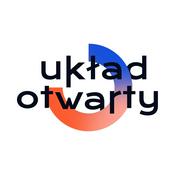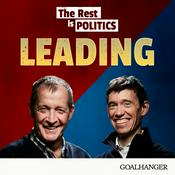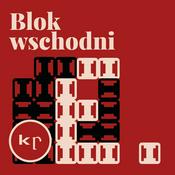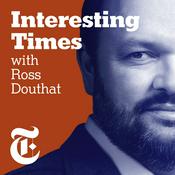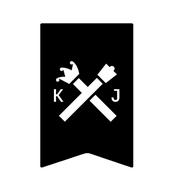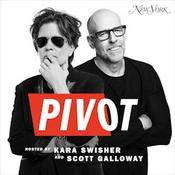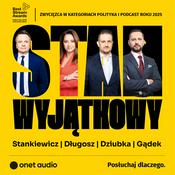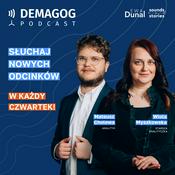279 odcinków

Modern X86 Assembly Language Programming • Daniel Kusswurm & Matt Godbolt
16.01.2026 | 32 min.
This interview was recorded for the GOTO Book Club.http://gotopia.tech/bookclubCheck out more here:https://gotopia.tech/episodes/411Daniel Kusswurm - SW Developer, Computer Scientist & Author of "Modern X86 Assembly Language Programming" & many more booksMatt Godbolt - Low-level Latency Geek & Creator of Compiler ExplorerRESOURCESMatthttps://bsky.app/profile/matt.godbolt.orghttps://xania.orghttps://github.com/mattgodbolthttps://www.linkedin.com/in/godbolthttps://twitter.com/mattgodbolthttps://godbolt.orgLinkshttps://link.springer.comhttps://youtu.be/L2Qu9rk05rEhttps://youtu.be/-HNpim5x-IEhttps://youtu.be/hgcNM-6wr34DESCRIPTIONMatt Godbolt, creator of Compiler Explorer, interviews Daniel Kusswurm, author of "Modern X86 Assembly Language Programming", about the enduring relevance of assembly language in modern software development. They explore what SIMD (Single Instruction, Multiple Data) is and why it enables dramatic performance improvements for specific computational tasks, discuss when assembly language programming is justified versus using compiler intrinsics, and examine the challenges of writing vectorized algorithms. Dan shares insights from his career optimizing image analysis software and explains how understanding low-level architecture can improve code quality even when writing in higher-level languages.RECOMMENDED BOOKSDaniel Kusswurm • Modern X86 Assembly Language Programming v3 • https://amzn.to/44hIVZfDaniel Kusswurm • Modern X86 Assembly Language Programming v2 • https://amzn.to/3LJlMIZDaniel Kusswurm • Modern X86 Assembly Language Programming v1 • https://amzn.to/43DPANjDaniel Kusswurm • Modern Arm Assembly Language Programming • https://amzn.to/4rbyH6MDaniel Kusswurm • Practical C++ STL Programming • https://amzn.to/4ickAdqDaniel Kusswurm • Modern Parallel Programming with C++ and Assembly Language • https://amzn.to/4o5J3SFBlueskyTwitterInstagramLinkedInFacebookCHANNEL MEMBERSHIP BONUSJoin this channel to get early access to videos & other perks:https://www.youtube.com/channel/UCs_tLP3AiwYKwdUHpltJPuA/joinLooking for a unique learning experience?Attend the next GOTO conference near you! Get your ticket: gotopia.techSUBSCRIBE TO OUR YOUTUBE CHANNEL - new videos posted daily!

The AI Engineer's Guide to Surviving the EU AI Act • Larysa Visengeriyeva & Barbara Lampl
13.01.2026 | 32 min.
This interview was recorded for the GOTO Book Club.http://gotopia.tech/bookclubCheck out more here:https://gotopia.tech/episodes/409Dr. Larysa Visengeriyeva - Author of "The AI Engineer’s Guide to Surviving the EU AI Act" & Independent Consultant for EU AI Act EngineeringBarbara Lampl - Behavioral Mathematician at empathic business by Barbara LamplRESOURCESLarysahttps://x.com/visengerhttps://bsky.app/profile/visenger.bsky.socialhttps://github.com/visengerhttps://www.linkedin.com/in/larysavisengerBarbarahttps://x.com/BarbaraLamplhttps://www.linkedin.com/in/barbaralamplhttps://barbara-lampl.tumblr.comLinkshttps://ml-ops.orghttps://github.com/visenger/awesome-mlopshttps://eur-lex.europa.eu/eli/reg/2024/1689/oj/enghttps://machinelearningcanvas.comhttps://louisdorard.gumroad.com/l/mlcanvashttps://ml-ops.org/content/crisp-mlDESCRIPTIONBarbara Lampl interviews Larysa Visengeriyeva, software engineer and "godmother of MLOps", about her new book on AI engineering and compliance. What starts as a discussion about the EU AI Act quickly reveals a deeper truth: the real challenge isn't regulatory compliance - it's fundamental engineering practices.Larysa argues that quality AI systems require robust MLOps, comprehensive documentation, and proper data governance, whether regulation mandates it or not. Drawing from frameworks like CRISP-ML and the Machine Learning Canvas, the book provides practical checklists and methodologies for taking AI projects from prototype to production. Written partially in Ukraine during wartime, this "battle-tested" guide addresses the gap between technical and non-technical stakeholders, offering a common language for building sustainable AI systems.RECOMMENDED BOOKSLarysa Visengeriyeva • The AI Engineer's Guide to Surviving the EU AI Act • https://amzn.to/42SKOuULakshmanan, Robinson & Munn • Machine Learning Design Patterns • https://amzn.to/4ox4EosPhil Winder • Reinforcement Learning • https://amzn.to/3t1S1VZDiana Montalion • Learning Systems Thinking • https://amzn.to/3ZpycdJBernd Rücker • Practical Process Automation • https://amzn.to/3cs3BSHLauren Maffeo • Designing Data Governance from the Ground Up • https://amzn.to/3QhIlnVKatharine Jarmul • Practical Data Privacy • https://amzn.to/46XPrnsZhamak Dehghani • Data Mesh • https://amzn.to/3tTCwACKate Stanley & Mickael Maison • Kafka Connect • https://amzn.to/40Jq5JzBlueskyTwitterInstagramLinkedInFacebookCHANNEL MEMBERSHIP BONUSJoin this channel to get early access to videos & other perks:https://www.youtube.com/channel/UCs_tLP3AiwYKwdUHpltJPuA/joinLooking for a unique learning experience?Attend the next GOTO conference near you! Get your ticket: gotopia.techSUBSCRIBE TO OUR YOUTUBE CHANNEL - new videos posted daily!

Java Generics and Collections • Maurice Naftalin & Stuart Marks
09.01.2026 | 32 min.
This interview was recorded for the GOTO Book Club.http://gotopia.tech/bookclubCheck out more here:https://gotopia.tech/episodes/406Maurice Naftalin - Architect, Trainer & Co-Author of "Java Generics & Collections"Stuart Marks - Java & OpenJDK at Oracle & Technical Editor of "Java Generics & Collections"RESOURCESMauricehttps://bsky.app/profile/mauricenaftalin.bsky.socialhttps://x.com/mauricenaftalinhttps://github.com/MauriceNaftalinhttps://www.linkedin.com/in/maurice-naftalinStuarthttps://bsky.app/profile/smarks.bsky.socialhttps://mastodon.social/@stuartmarkshttps://x.com/stuartmarkshttps://github.com/stuart-markshttps://www.linkedin.com/in/stuart-marks-17a71a2https://stuartmarks.wordpress.comDESCRIPTIONMaurice Naftalin and Stuart Marks discuss the second edition of "Java Generics and Collections", published 19 years after the original. The conversation explores how Java programming has evolved from Java 5 to Java 25, covering major shifts like the move toward immutability, the introduction of sequenced collections, streams, and unmodifiable collections.They delve into critical design topics including encapsulation of collections, the anemic domain model anti-pattern, the controversial unsupported operation exception, and the challenges of null handling. The book includes new chapters on usage guidance and design retrospectives that reflect decades of accumulated wisdom about the Collections Framework.RECOMMENDED BOOKSMaurice Naftalin & Philip Wadler • Java Generics and Collections 2nd ed • https://amzn.to/47dOp9tMaurice Naftalin & Philip Wadler • Java Generics and Collections 1st ed • https://amzn.to/42JI03iJoshua Bloch • Effective Java • https://amzn.to/4oFbdoiVictor Grazi & Jeanne Boyarsky • Real-World Java • https://amzn.to/4oCEeBRKevlin Henney & Trisha Gee • 97 Things Every Java Programmer Should Know • https://amzn.to/3kiTwJJChristian Clausen • Five Lines of Code • https://amzn.to/3s2zjygNicolai Parlog • The Java Module System • https://amzn.to/3xFggR4BlueskyTwitterInstagramLinkedInFacebookCHANNEL MEMBERSHIP BONUSJoin this channel to get early access to videos & other perks:https://www.youtube.com/channel/UCs_tLP3AiwYKwdUHpltJPuA/joinLooking for a unique learning experience?Attend the next GOTO conference near you! Get your ticket: gotopia.techSUBSCRIBE TO OUR YOUTUBE CHANNEL - new videos posted daily!

Building Better Software: Why Workflows Beat Code Every Time • Ben Smith & James Beswick
06.01.2026 | 46 min.
This interview was recorded for GOTO Unscripted.https://gotopia.techCheck out more here:https://gotopia.tech/articles/407Ben Smith - Staff Developer Advocate at StripeJames Beswick - Head of Developer Relations at StripeRESOURCESBenhttps://twitter.com/benjamin_l_shttps://github.com/bls20AWShttps://linkedin.com/in/bensmithportfoliohttp://developeradvocate.co.ukhttps://thewebsmithsite.wordpress.comJameshttps://bsky.app/profile/jbesw.bsky.socialhttps://twitter.com/jbeswhttps://linkedin.com/in/jamesbeswickLinkshttps://stripe.devhttps://serverlessland.comDESCRIPTIONJames Beswick and Ben Smith explore the evolution of modern software architecture. They discuss why workflow services are essential for managing distributed systems, the challenges of microservices versus monoliths, and the power of plugin architectures.The conversation covers practical topics like idempotency, circuit breaker patterns, and the importance of observability, while also diving into what makes a great developer advocate and how to build demos that truly resonate with developers.RECOMMENDED BOOKSSimon Brown • Software Architecture for Developers Vol. 2 • https://leanpub.com/visualising-software-architectureDavid Farley • Modern Software Engineering • https://amzn.to/3GI468MKim, Humble, Debois, Willis & Forsgren • The DevOps Handbook • https://amzn.to/47oAf3lSimon Wardley • Wardley Maps • https://amzn.to/45U8UprSimon Wardley • Wardley Mapping, The Knowledge • https://amzn.to/3XQEeDuDavid Anderson, Marck McCann & Michael O'Reilly • The Value Flywheel Effect • https://amzn.to/3VcHxCMike Amundsen • Restful Web API Patterns & Practices Cookbook • https://amzn.to/3C74fpHBlueskyTwitterInstagramLinkedInFacebookCHANNEL MEMBERSHIP BONUSJoin this channel to get early access to videos & other perks:https://www.youtube.com/channel/UCs_tLP3AiwYKwdUHpltJPuA/joinLooking for a unique learning experience?Attend the next GOTO conference near you! Get your ticket: gotopia.techSUBSCRIBE TO OUR YOUTUBE CHANNEL - new videos posted daily!

Building Software That Survives • Michael Nygard & Charles Humble
02.01.2026 | 38 min.
This interview was recorded for GOTO Unscripted.https://gotopia.techRead the full transcription of this interview here:https://gotopia.tech/articles/408Michael Nygard - Chief Architect at Nubank & Author of "Release It!"Charles Humble - Freelance Techie, Podcaster, Editor, Author & ConsultantFULL TALK TITLEBuilding Software That Survives: Autonomy, Architecture & Alignment at ScaleRESOURCESMichaelhttps://www.linkedin.com/in/mtnygardhttps://twitter.com/mtnygardhttp://www.michaelnygard.comCharleshttps://bsky.app/profile/charleshumble.bsky.socialhttps://linkedin.com/in/charleshumblehttps://mastodon.social/@charleshumblehttps://conissaunce.comDESCRIPTIONMichael Nygard, author of the influential "Release It!" and Chief Architect at Nuank, discusses his journey from programmer to technical leader.In this conversation, he shares insights from major transformation projects at Sabre and Nubank, exploring the nuances of centralization versus autonomy, the often-misunderstood implications of Conway's Law, and how architectural boundaries can reduce the need for constant organizational alignment.He emphasizes that effective technical leadership involves more than reorganizations - it requires understanding communication structures, celebrating the right behaviors, and creating systems that enable teams to operate independently within well-defined boundaries.RECOMMENDED BOOKSMichael Nygard • Release It! 2nd Edition • https://amzn.to/3WJeKV8Michael Nygard • Release It! 1st Edition • https://amzn.to/3XCkiRfRichard Monson-Haefel • 97 Things Every Software Architect Should Know • https://amzn.to/3JdRYU2Charles Humble • Professional Skills for Software Engineers • https://www.conissaunce.com/professional-skills-shortcutPatterson, Grenny, McMillan & Switzler • Crucial Conversations • https://amzn.to/3LhGHTaYevgeniy Brikman • Fundamentals of DevOps and Software Delivery • https://amzn.to/3WMPMFUTod Golding • Building Multi-Tenant SaaS Architectures • https://amzn.to/3YfM49oJacqui Read • Communication Patterns • https://amzn.to/3E37lvvMatthew Skelton & Manuel Pais • Team Topologies • http://amzn.to/3sVLyLQJames Stanier • Become an Effective Software Engineering Manager • https://amzn.to/3vHrx1EBlueskyTwitterInstagramLinkedInFacebookCHANNEL MEMBERSHIP BONUSJoin this channel to get early access to videos & other perks:https://www.youtube.com/channel/UCs_tLP3AiwYKwdUHpltJPuA/joinLooking for a unique learning experience?Attend the next GOTO conference near you! Get your ticket: gotopia.techSUBSCRIBE TO OUR YOUTUBE CHANNEL - new videos posted daily!
Więcej Wiadomości podcastów
Trendy w podcaście Wiadomości
O GOTO - The Brightest Minds in Tech
Słuchaj GOTO - The Brightest Minds in Tech, OSW - Ośrodek Studiów Wschodnich i wielu innych podcastów z całego świata dzięki aplikacji radio.pl

Uzyskaj bezpłatną aplikację radio.pl
- Stacje i podcasty do zakładek
- Strumieniuj przez Wi-Fi lub Bluetooth
- Obsługuje Carplay & Android Auto
- Jeszcze więcej funkcjonalności
Uzyskaj bezpłatną aplikację radio.pl
- Stacje i podcasty do zakładek
- Strumieniuj przez Wi-Fi lub Bluetooth
- Obsługuje Carplay & Android Auto
- Jeszcze więcej funkcjonalności


GOTO - The Brightest Minds in Tech
pobierz aplikację,
zacznij słuchać.





